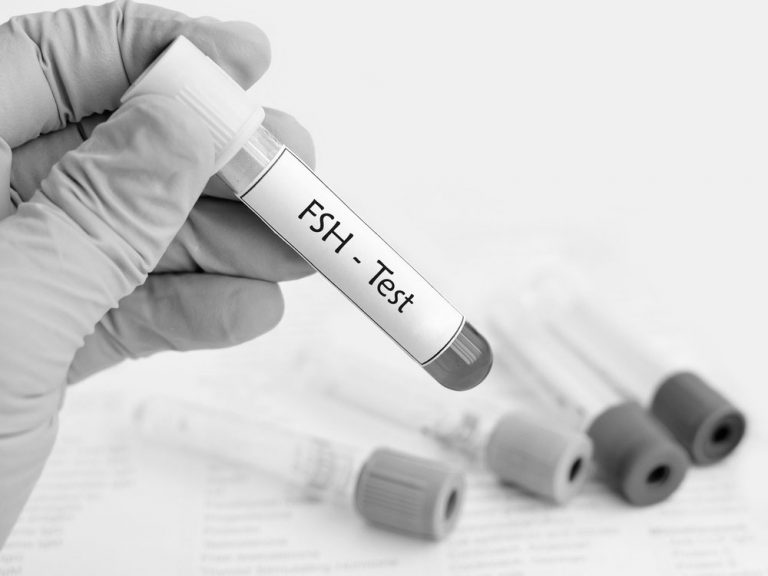Common Reasons for Female Infertility
Infertility in female human being is referred as Female infertility. Infertility is diagnosed when a female individual is not being able to get pregnant over the course of one year of trying (or 6 months if the woman is over age 35). Among all infertility cases, female infertility factors account for almost 50%. Inability to get pregnant is said to be the main symptom of infertility. A menstrual cycle which is too long (35 days or more), too short (less than 21 days), irregular or absent can be the outward signs which mean a female is not ovulating.
Female infertility is caused by one or more of the factors below.
- Ovulation Disorders
It occurs when a female ovulates infrequently or not at all. In such cases, an egg is released rarely or never, thus preventing the conception. This factor accounts for infertility in about 1 in 4 infertile couples Ovulation disorders can be caused by the following factors.
Polycystic Ovary Syndrome (PCOS): It is when women of childbearing age produce elevated amounts of androgens (male hormones) making the conception process harder. Women with PCOS usually experience irregular or heavy periods, excess facial and body hair, pelvic pain, acne, and patches of thick, darker, velvety skin etc.
Hypothalamic Dysfunction: Pituitary gland produces two hormones, Follicle stimulating hormone (FSH) and luteinizing hormone (LH), responsible for stimulating ovulation each month. Any disruption in production of these hormones affects ovulation. The common sign includes irregular or absent periods. Several reasons including genetic disorder, anorexia, tumors, bleeding etc. have been linked to hypothalamic dysfunction.
Premature Ovarian Failure
Also known as primary ovarian insufficiency, it is the loss of function of the ovarian follicles with cessation of menses before 40 years of age. The common causes of this condition are chromosomal abnormalities or damage from chemotherapy or radiation therapy.
Too Much Prolactin
The excess production of prolactin (hyperprolactinemia) from pituitary gland reduces estrogen production and lead to infertility. A growth or tumor on the pituitary gland called prolactinoma (producing high levels of prolactin) is a common cause of hyperprolactinemia.
- Damage to Fallopian Tubes (Tubal Infertility)
Fallopian tubes are the two thin tubes carrying the mature egg from ovaries to the uterus. Fertilization takes place in the fallopian tubes when eggs travel through fallopian tubes and sperms are swimming their way from the cervix to the uterus. With a blocked or damaged fallopian tubes, eggs cannot reach to the uterus thus impending fertilization and eventually pregnancy.
When both the tubes are fully blocked, it becomes impossible to conceive without treatment. In case of partial blockage, it becomes hard for the fertilized egg to move to the uterus through a blockage, thus increasing the risk of ectopic pregnancy. In such cases, a doctor usually recommends in vitro fertilization (IVF), depending on the possibility of treatment.
When only one fallopian tube is blocked, it is most likely that the blockage won’t affect fertility because a fertilized egg still can travel through the unaffected fallopian tube. Fertility drugs can be used to increase the chances of ovulation on the open side.
- Endometriosis
It is a condition in which the endometrium, the layer of tissue forming the inside lining of the uterus, grows outside of it. The growth is often on the ovaries, fallopian tubes, and tissue around the uterus, though, in rare cases, it may grow in other parts of the body. Symptoms usually include pelvic pain and infertility.
Endometrial deposits prevent a fertilized egg from getting into the fallopian tubes, thus preventing pregnancy.
How Does Endometriosis Prevent Pregnancy?
- Endometrial deposits often prevent an egg from getting into the fallopian tubes.
- Ovulation problems occur when endometrial cysts form on the ovaries.
- The healthy implantation of embryo gets disrupted if endometriosis causes any inflammation.
- Uterine or Cervical Causes
Fertility is impacted by certain conditions pertaining to uterus or cervix hindering implantation or by increasing the likelihood of a miscarriage.
- Tumors (fibroids or myomas) and benign polyps are common in the uterus. These can interfere with implantation by causing blockage in fallopian tubes, thus affecting fertility.
- Inflammation within the uterus or Endometriosis scarring also disrupts implantation.
- The abnormalities present in the uterus from birth like an abnormally shaped uterus, also causes problems to become or remain pregnant.
- The narrowing of the cervix called cervical stenosis caused by an inherited malformation or damage to the cervix also causes infertility.
- When the best type of mucus is not produced by cervix the sperm cannot travel through the cervix into the uterus.
- Unexplained Infertility
The cause of infertility cannot be diagnosed at times. In such cases, infertility can be caused by several factors in both the partners. When infertility is unexplained, and no specific answer is derived regarding the cause, it becomes frustrating for the couple. The treatment for infertility should never be delayed, though.
